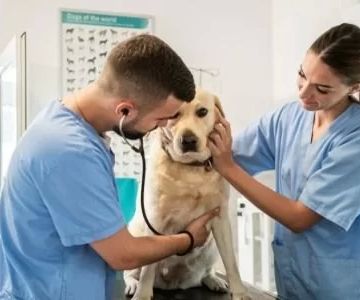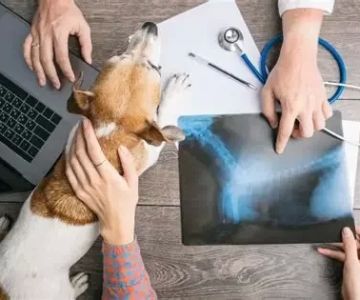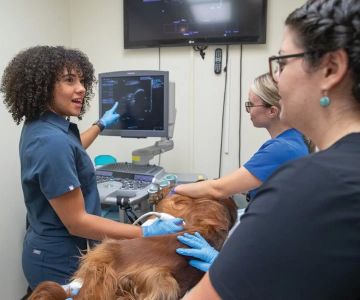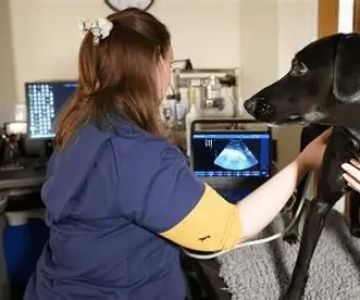What Type of Education is Required to Be a Veterinarian?
- 1. Overview of Veterinary Education
- 2. Steps to Becoming a Veterinarian
- 3. Veterinary School Programs and Degrees
- 4. Essential Skills and Qualifications Needed
- 5. Real-Life Stories from Veterinarians
- 6. How to Start Your Veterinary Career
1. Overview of Veterinary Education
Becoming a veterinarian is a rewarding and challenging journey that requires a significant amount of education and training. Veterinarians are highly skilled professionals who care for animals, diagnose illnesses, and perform surgeries. The path to becoming a veterinarian involves a combination of undergraduate education, veterinary school, and clinical training. The education required to become a veterinarian is rigorous and demands dedication, but it opens the door to a fulfilling career in animal health.
2. Steps to Becoming a Veterinarian
To pursue a career as a veterinarian, several steps must be followed. The process can take many years, but each stage builds the foundation for the next. Here’s an overview of the key steps:
2.1 Obtain a Bachelor's Degree
The first step toward becoming a veterinarian is to earn a bachelor's degree. While no specific major is required, most aspiring veterinarians choose a science-related field such as biology, chemistry, or animal science. The key is to complete courses in subjects like biology, chemistry, physics, and mathematics, which are essential for veterinary school admission.
2.2 Gain Experience with Animals
In addition to academic qualifications, veterinary schools typically require applicants to have hands-on experience working with animals. This experience can be gained through internships, volunteer work, or employment in animal shelters, veterinary clinics, or farms. Having practical experience with animals not only strengthens your application but also provides valuable insights into the field of veterinary medicine.
2.3 Apply to Veterinary School
Once you have completed your bachelor’s degree and gained relevant experience, the next step is applying to a veterinary school. Admission to veterinary schools is highly competitive, and applicants must meet strict academic requirements. It is important to prepare well for this stage, as the application process includes exams such as the GRE and may involve interviews or personal statements.
3. Veterinary School Programs and Degrees
Veterinary school programs typically span four years, leading to a Doctor of Veterinary Medicine (DVM) or Veterinariae Medicinae Doctoris (VMD) degree. The curriculum is comprehensive and covers a variety of subjects including animal anatomy, physiology, pharmacology, pathology, and surgery. Veterinary students also gain clinical experience through hands-on training and rotations in different specialties.
3.1 Coursework and Training
During veterinary school, students study a range of subjects including biology, medicine, and surgery. Practical training is equally important, and students often work in animal clinics under the supervision of licensed veterinarians. This allows them to practice diagnosing and treating animals, which is crucial for developing the necessary skills for their future practice.
3.2 Specializations
After earning their DVM or VMD, some veterinarians choose to specialize in specific areas of animal medicine, such as surgery, dermatology, internal medicine, or exotic animal care. These specializations often require additional training or a residency program.
4. Essential Skills and Qualifications Needed
In addition to formal education, veterinarians need a variety of skills and personal qualities to succeed in their careers. Here are some essential skills that will help you as a veterinarian:
4.1 Strong Communication Skills
Veterinarians must be able to communicate clearly with pet owners, staff, and other medical professionals. Explaining medical conditions, treatment plans, and post-care instructions requires effective communication skills.
4.2 Compassion and Empathy
Veterinarians must demonstrate compassion and empathy, not only for the animals in their care but also for their owners. Helping pet owners understand their pets’ medical conditions can be emotionally challenging, and empathy is vital to providing the best care possible.
4.3 Problem-Solving and Critical Thinking
Diagnosing and treating animals often involves problem-solving and critical thinking. Veterinarians must be able to analyze symptoms, make accurate diagnoses, and decide on appropriate treatment plans, sometimes under pressure.
5. Real-Life Stories from Veterinarians
Meet Dr. Emily, a veterinarian who always had a passion for animals. She recalls how her childhood fascination with animals led her to pursue a degree in animal science, followed by veterinary school. After years of hard work, Dr. Emily opened her own practice and now specializes in exotic animals. She credits her success to the comprehensive education she received and the real-world experience gained through internships and clinical rotations.
Another example is Dr. Mark, who decided to specialize in veterinary surgery. His training involved extensive hands-on practice in surgeries and procedures, including orthopedic and soft tissue surgeries. Today, Dr. Mark works at a leading veterinary hospital, providing life-saving surgeries for animals in need.
6. How to Start Your Veterinary Career
After completing veterinary school, obtaining licensure is the next step. Veterinarians must pass the North American Veterinary Licensing Exam (NAVLE) to become licensed to practice. Once licensed, you can work in various settings, including private practices, animal hospitals, research institutions, or even in wildlife conservation.
If you’re looking to get started in your veterinary career, consider connecting with educational institutions and professional networks that can provide further guidance. Tools and resources from organizations like the American Veterinary Medical Association (AVMA) can help guide your career path and professional development.
If you’re ready to take the first step toward becoming a veterinarian, visit ESPLawyers for advice and resources on veterinary education programs and licensing requirements!











